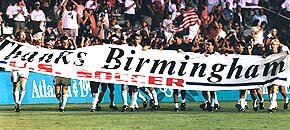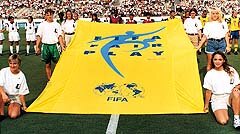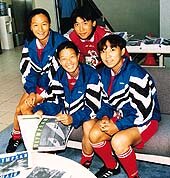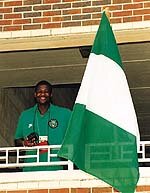
The American players thank the fabulous crowd in Birmingham.
General comments on the organisation
 The American players thank the fabulous crowd in Birmingham. |
Stadiums
 Fair Play - more than just a slogan at Atlanta '96. |
Transport
 The players of the Chinese team seem to feel at home in the Olympic Village. |
Security
 The Nigerian flag is raised and the Olympic Village is firmly in the grip of the eventual winners. |